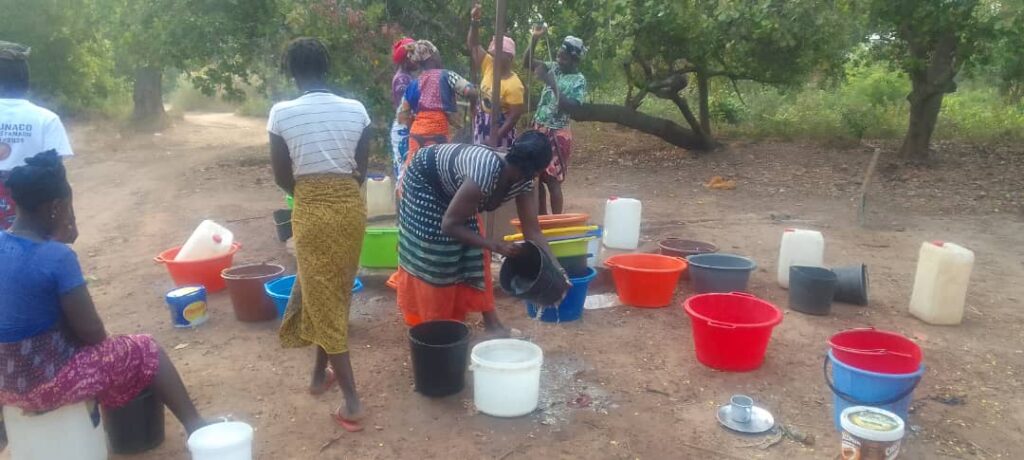In rural Africa, the triple challenge of women, water, and farming continues to shape economic and social realities. Across the Southern African Development Community (SADC Official Website), women face barriers to water access, agricultural productivity, and economic empowerment. Addressing these challenges requires integrated systems that connect irrigation, agri-training, and cooperative development.
The Triple Challenge
Women are central to rural farming in Africa, performing tasks from planting and tending crops to harvesting and marketing produce. In many areas, women also walk long distances to collect water, reducing available time for farming activities or agricultural training. A lack of irrigation increases vulnerability to drought, lowers yields, and adds to community strain.
Water scarcity is both an agricultural and a public health issue. Without reliable clean water or irrigation infrastructure, household food security declines, and resilience to climate shocks is weakened. Time spent fetching water also reduces opportunities for skill-building and participation in cooperative activities.
Farming remains a key pathway out of poverty. However, without access to agricultural inputs, markets, and cooperative support, smallholder women farmers remain economically marginalised.
Importance of the Southern African Development Community
The Southern African Development Community (SADC), which includes nations such as Zimbabwe, Zambia, Mozambique, Malawi, Botswana, and South Africa, holds both high agricultural potential and significant water management challenges. The region’s water-stressed rural communities face limited inclusive irrigation infrastructure, insufficient gender-responsive extension services, and weak cooperative structures.
Aligning with SADC agricultural policies (SADC Food, Agriculture and Natural Resources Directorate) enables the scaling of sustainable farming and water access projects across national borders. This approach supports cross-border water management, climate resilience, and rural empowerment.
Sustainable Solutions for Women in Agriculture
A systems-based model for addressing the triple challenge combines:
- Irrigation access: Implementation of small-scale irrigation systems close to farms to increase growing seasons and reduce water collection time.
- Agricultural training: Delivery of targeted agri-training for women farmers, focusing on drought-resilient crops, efficient planting techniques, and post-harvest handling.
- Water infrastructure: Development of boreholes and rainwater harvesting systems, coupled with training for maintenance and sustainability.
- Cooperative development: Formation and strengthening of women-led cooperatives to enhance market access, reduce costs, and build collective bargaining power.
According to UN Women (UN Women Africa Programs), increasing women’s agricultural productivity has a direct impact on household nutrition, children’s education, and local economic growth.
Global Reach with Local Application
Although the approach applies globally, regional tailoring is essential. Within the Southern African Development Community, collaboration with local NGOs, government agencies, and development institutions aligns agricultural and water projects with policy priorities and market dynamics.
Case studies from organisations such as FAO (Food and Agriculture Organisation) demonstrate that women with access to irrigation and training can increase yields by 20 to 30 percent. Cooperative structures further amplify this growth by linking producers directly to buyers.
Engagement Opportunities
Partnership and support are critical for scaling impact. Interested stakeholders can:
- Request a quote to assess the feasibility for specific communities.
- Partner on irrigation, training, water, or cooperative development projects.
- Sign up for newsletters to receive updates on rural agricultural initiatives.
- Follow on social media to observe project outcomes and research findings.
Call to Action
We invite you to join us in making a difference. Whether you are a donor partner, an institutional ally, or a private sector collaborator, here is how you can get involved:
- Request a quote to discuss how we can work together in a specific community or region.
- Partner with us to scale irrigation access, agri-training, water infrastructure, or cooperative support across more areas.
- Sign up for our newsletter to get updates on new projects, success stories, and ways to support rural women farmers.
- Follow us on social media to stay connected and see the real-time impact of our work.
Together, we can address the triple challenge of Women, Water, and Farming in rural Africa head-on. With the right systems-based model, particularly across the Southern African Development Community, we are confident we can create sustainable, lasting change. Let us empower women as agents of transformation, and let us do it together.

